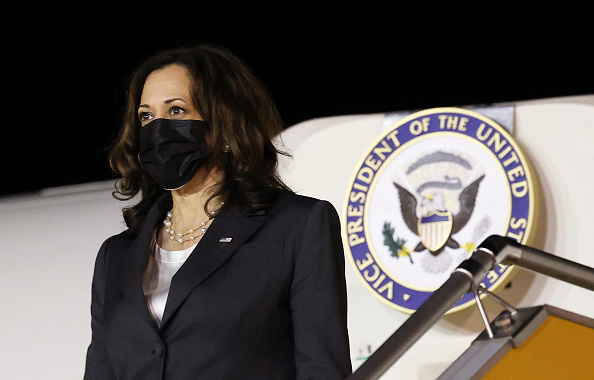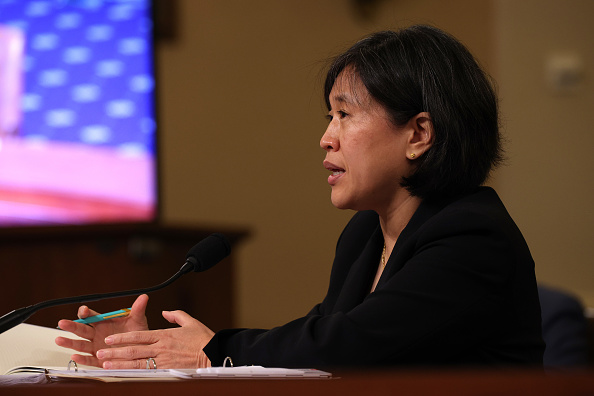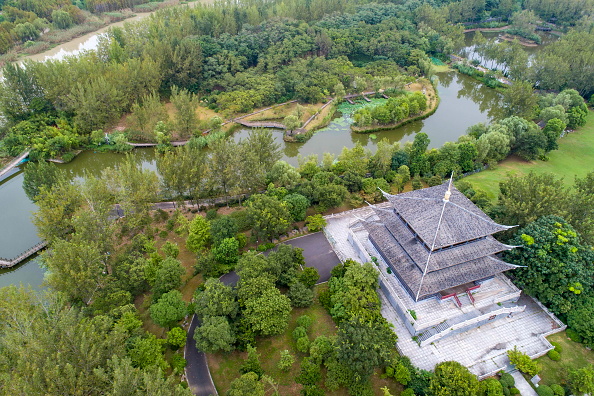
 China's Backyard
China's BackyardAs Vice President Kamala Harris continues her tour of Southeast Asia to rally allies, a three hour delay in her schedule while en route to Vietnam showcased the impact of an intensifying rivalry between Beijing and Washington. Harris intended to touch down in Hanoi and announce a donation of 1 million COVID vaccines, the latest episode in the Biden administration's Southeast Asia charm offensive. But with the delay, Beijing didn't hesitate at the chance to share the spotlight and quickly sent an envoy to meet with Vietnamese Prime Minister Pham Minh Chinh, pledging a donation of 2 million vaccines to Vietnam, which is currently facing a difficult spike in coronavirus cases.
Harris's visit to the region also included a stop in Singapore to deliver remarks about China's actions in the South China Sea. She spoke about how the U.S. believes China is infringing on the sovereignty of its neighbors with its claims of the area, and is using "coercion" and "intimidation" to back those assertions. The visit comes in the midst of America's tumultuous exit from Afghanistan, which has dominated the talk of the global community for the better part of the last two weeks,, and has required Harris to reassure nations in the South China Sea that the United States is still a reliable ally.
Overall, Harris has used her trip to emphasize that the U.S. doesn't seek conflict with China, but will speak up on issues that "threaten the rules-based international order." Harris's remarks led to rebukes from Beijing, which accused the U.S. of interfering with regional affairs and disturbing the peace. Read more in "The Limits of Biden's Charm Offensive in Southeast Asia," by Richard Javad Heydarian.
 A Comprehensive Review
A Comprehensive ReviewIt's been over half a year since Joe Biden entered the White House as President, yet an explicit trade policy with China is still absent. That is not to say no action has been taken, though. U.S. trade representative Katherine Tai said on Tuesday that her office was conducting a "comprehensive review" of existing policies. Meanwhile, the Chinese government commented that trade communications between the two nations were normal.
However, both countries are still struggling to resolve a trade war that began under Trump's presidency, recover billions of dollars worth of goods, and navigate decoupling or recoupling. Business leaders on both sides of the Pacific are also making moves to bolster their financial sectors and bilateral relations by improving and facilitating business transactions. The China-U.S. Financial Roundtable — a group of Wall Street figures and Chinese officials formed in 2018 amid escalating economic tensions— is seeking to meet again this fall, its first meeting since October 2020.
 Environmental Endeavors
Environmental EndeavorsAs China aims to reach peak carbon emissions by 2030 and net zero by 2060, the world's largest greenhouse gas producer continues to make strides in its efforts to fight climate change and protect its natural habitats. Beijing recently announced the intention to plant 36,000 kilometers of new forest each year from 2021 to 2025, maintaining tree planting as an intricate part of China's environmental endeavors. As China hopes to increase its overall forest coverage, it will rely on "natural reforestation," said Li Chunliang, vice-chairman of the State Forestry and Grasslands Commission, suggesting that the kind of trees planted will be determined by the local environment. Chinese official Chen Jiawen, who will be drafting part of China's environmental plans, said that the country is also working to expand the national park systems and alleviate the illegal trade of wildlife.
In further efforts to fight the climate crisis, China's environment ministry announced this week that they will send inspectors to perform environmental audits in five Chinese provinces and two state-run metal firms in response to problems reported by local communities. "It is necessary to carefully verify, resolutely rectify and effectively solve the prominent ecological and environmental problems reported by the masses," the ministry said.
As China seemingly progresses in some of its climate efforts, local activists from the environmental group, Greenpeace, remain concerned about new approvals of coal-fired projects. While there has been a decline in overall authorization rates, local province planning agencies still approved 24 new coal-fired power plants, which puts China's total planned capacity at a rate high enough to power the United Kingdom. China has said it will not begin cutting coal consumption until 2026, and will control new, local coal-fired projects in the meantime. On the global stage, U.S. climate envoy John Kerry will also return to China next week with the hopes of pushing Chinese leaders to halt the financing of international coal-fired projects. As climate has emerged as an area of potential U.S.-China cooperation, China has also emphasized its current pledges to reduce carbon emissions before making new promises.
Prepared by China-US Focus editorial teams in Hong Kong and New York, this weekly newsletter offers you snap shots of latest trends and developments emerging from China every week, while adding a dose of historical perspective.
- 2021-08-20 Graveyard of Empires
- 2021-08-13 A New Crossroads
- 2021-08-06 Lowering Barriers
- 2021-07-30 A Diplomatic Stalemate
- 2021-07-23 A Climate for Change
- 2021-07-16 The Trade Game
- 2021-07-09 Existential Threats
- 2021-07-01 Centenary Celebrations
- 2021-06-25 Critical Crossroads
- 2021-06-18 Part of the Club
- 2021-06-11 Retaliatory Legislation
- 2021-06-04 "Defanging" Diplomacy
- 2021-05-28 The End of an Era?
- 2021-05-21 One Step Forward, One Step Back
- 2021-05-14 Drifting Trade Ties
- 2021-05-07 Time to Talk
- 2021-04-30 Academic Pandemic
- 2021-04-23 Carbon Cutting
- 2021-04-16 A Hopeful Climate
- 2021-04-09 Technological Frontiers